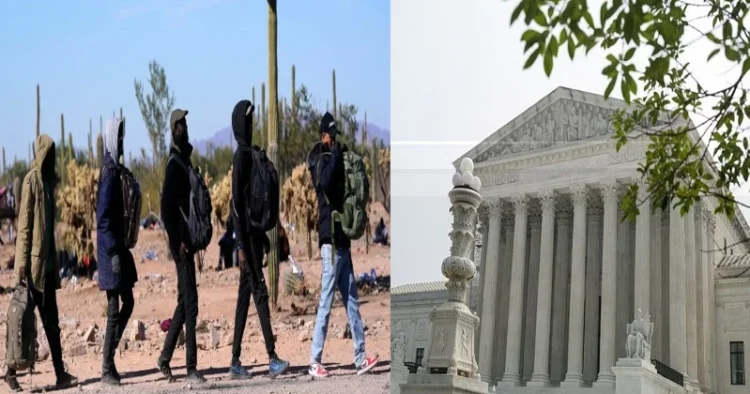The US Supreme Court on March 19, allowed the state of Texas to immediately begin enforcing an immigration law, deemed controversial by many, that allows state officials to arrest and detain people they suspect of entering the country illegally.
Legal challenges to the law are ongoing at a federal appeals court, but the decision hands a significant win to Texas, which has been battling the Biden administration over immigration policy.
The March 19, order also wiped away the indefinite pause put by the court, which was blocking the law from taking effect.
Senate Bill 4, signed into law by Republican Governor, Greg Abbott in December, makes entering Texas illegally a ‘state crime’ and allows state judges to order immigrants to be deported. Immigration enforcement, generally, is a function of the federal Government.
The law has raised concerns among immigration advocates of increased racial profiling as well as detentions and attempted deportations by state authorities in Texas, where Latinos represent 40 per cent of the population.
The White House has also raised concerns about the ruling, calling it “harmful and unconstitutional” while adding that it will make communities in Texas less safe.
“We fundamentally disagree with the Supreme Court’s order allowing Texas’ harmful and unconstitutional law to go into effect. SB 4 will not only make communities in Texas less safe, it will also burden law enforcement, and sow chaos and confusion at our southern border,” White House press secretary Karine Jean-Pierre said in a statement.
She accused the Republicans of ‘politicising’ the border issue while blocking the real solution of securing the border.
‘SB 4 is just another example of Republican officials politicising the border while blocking real solutions. We remained focused on delivering the significant policy changes and resources we need to secure the border – that is why we continue to call on Congressional Republicans to pass the bipartisan border security agreement, the toughest and fairest set of border reforms in decades,” the statement added.
(with inputs from ANI)



















Comments